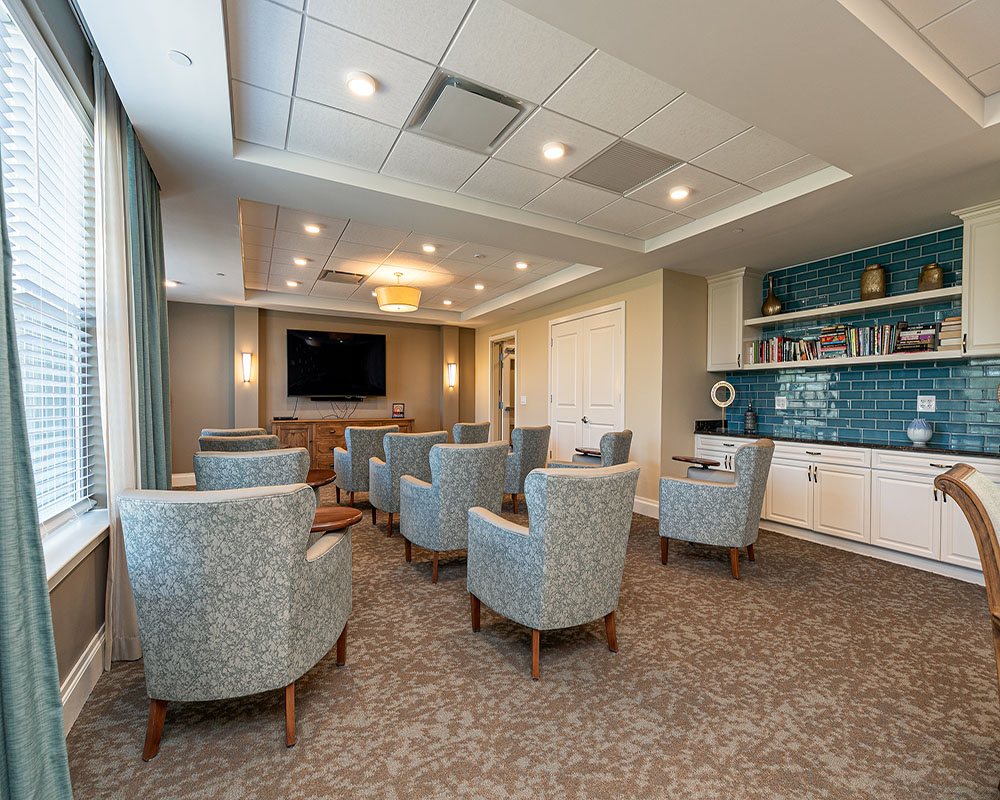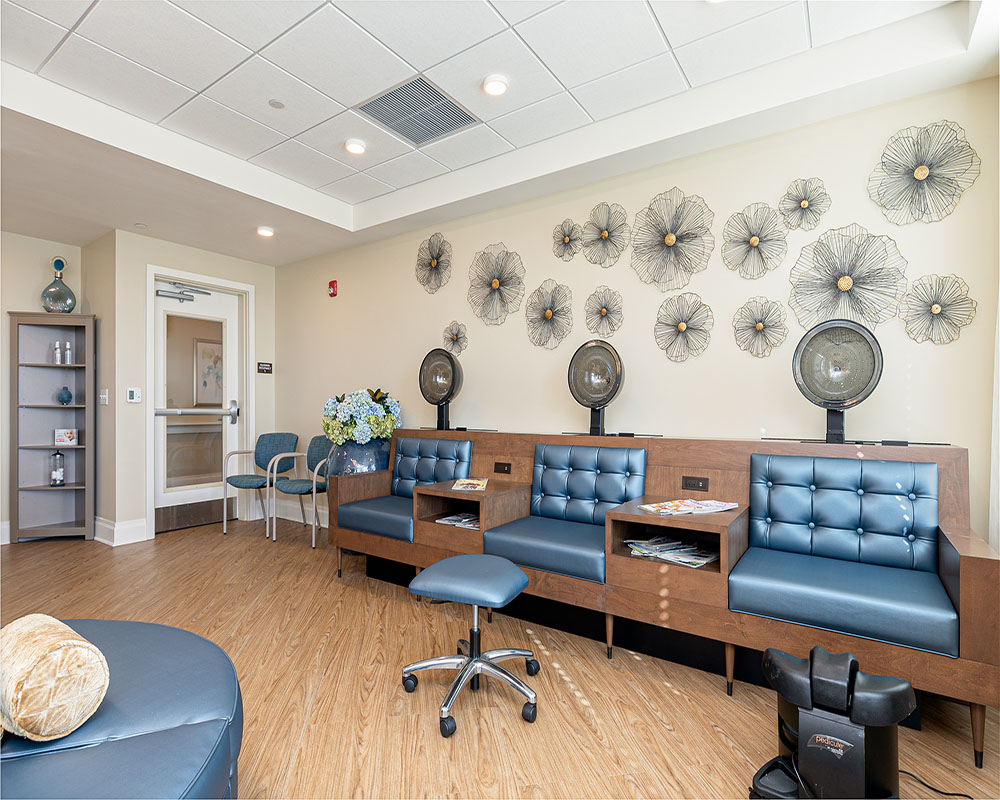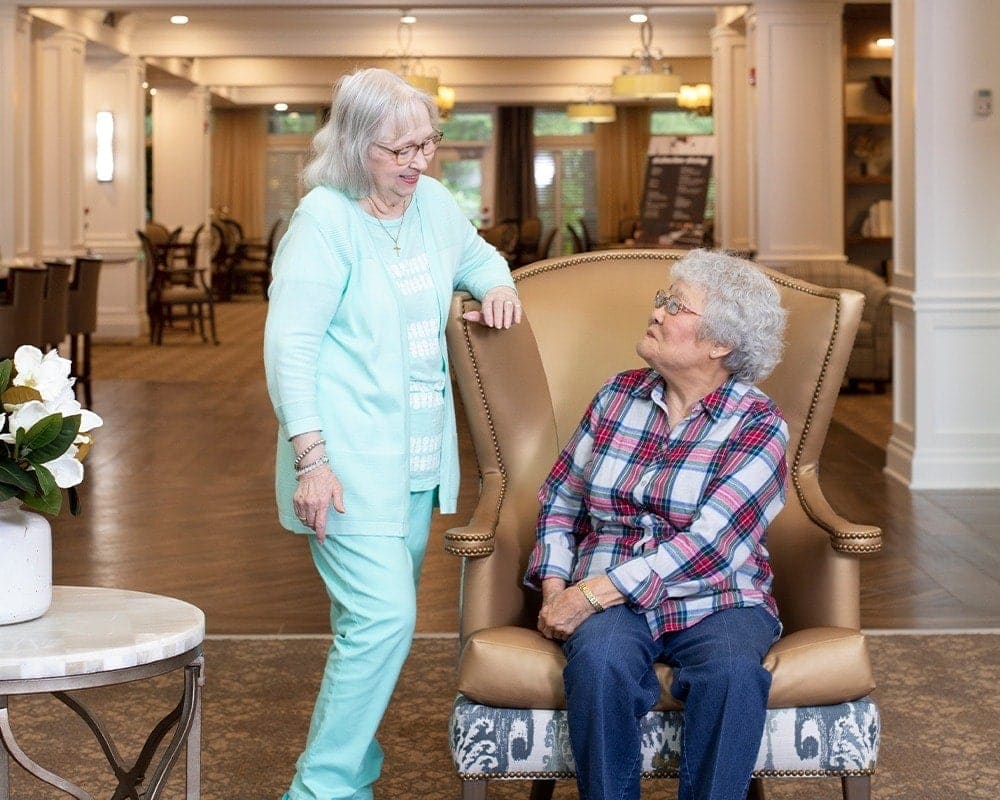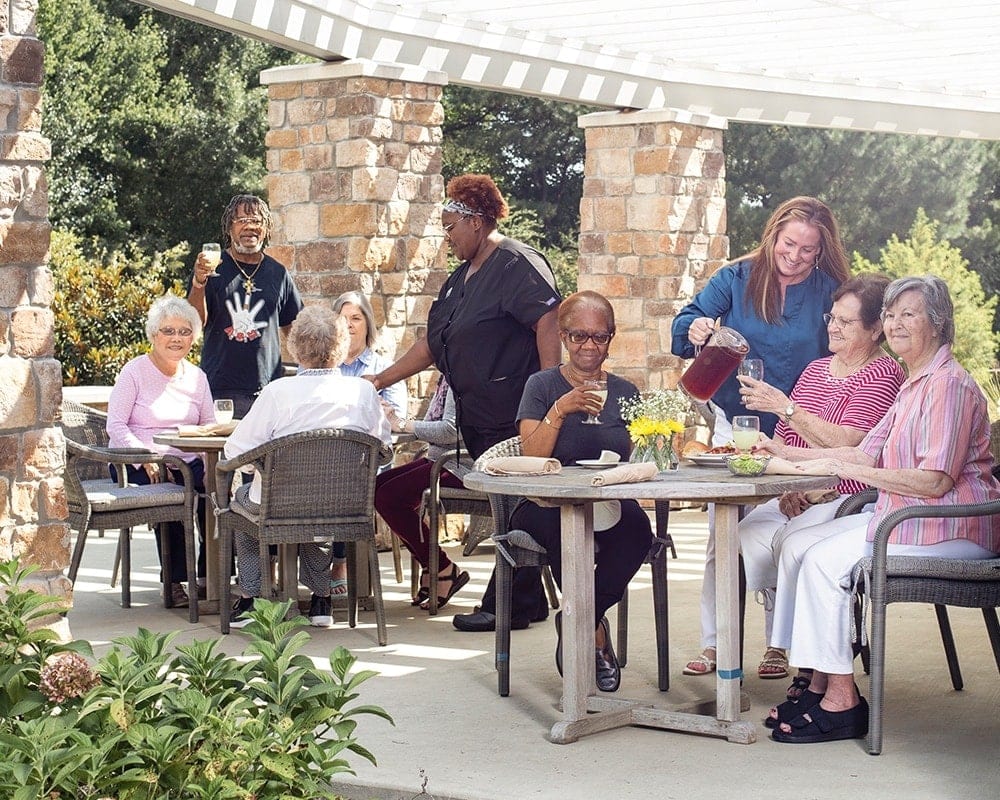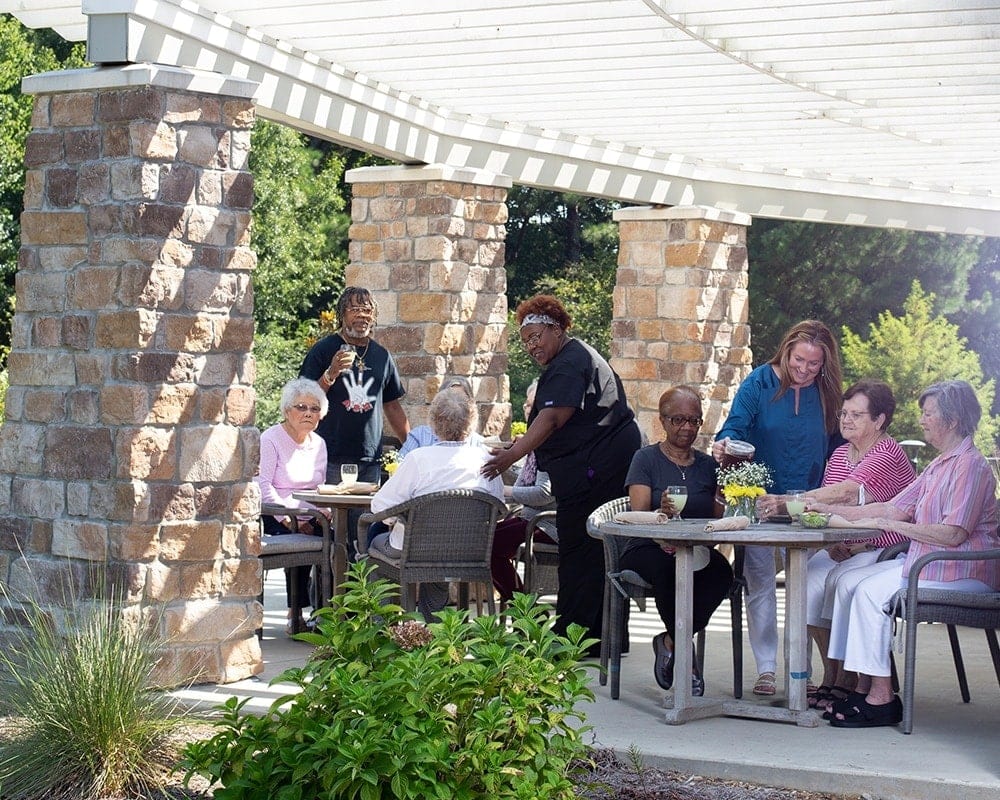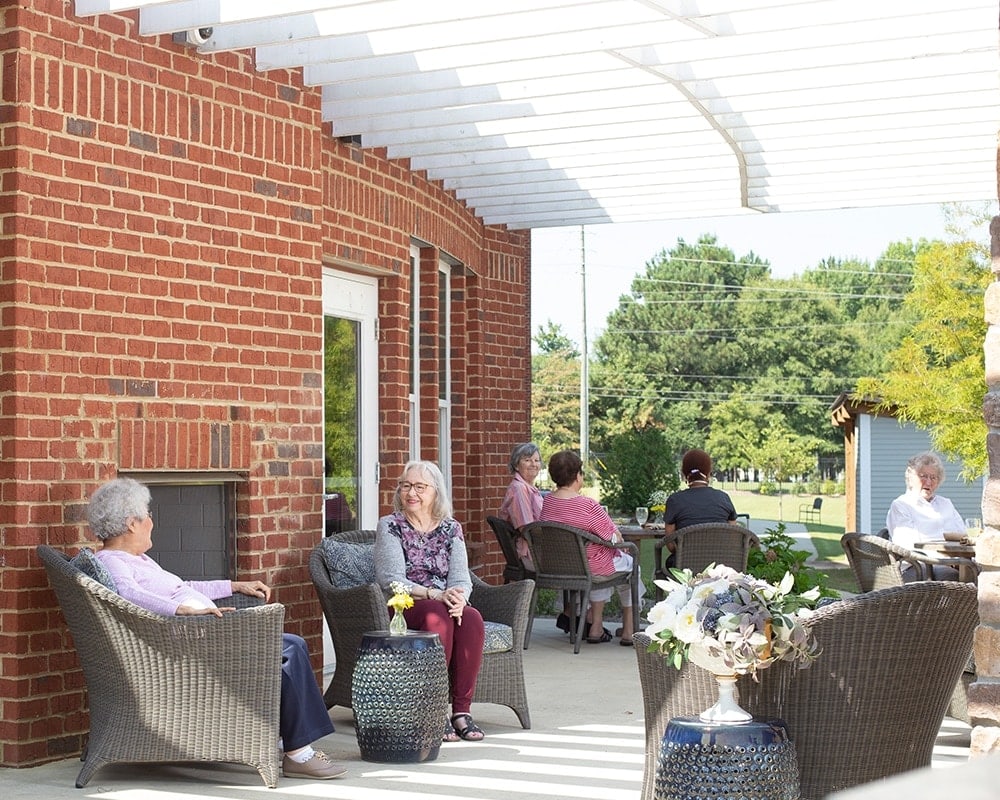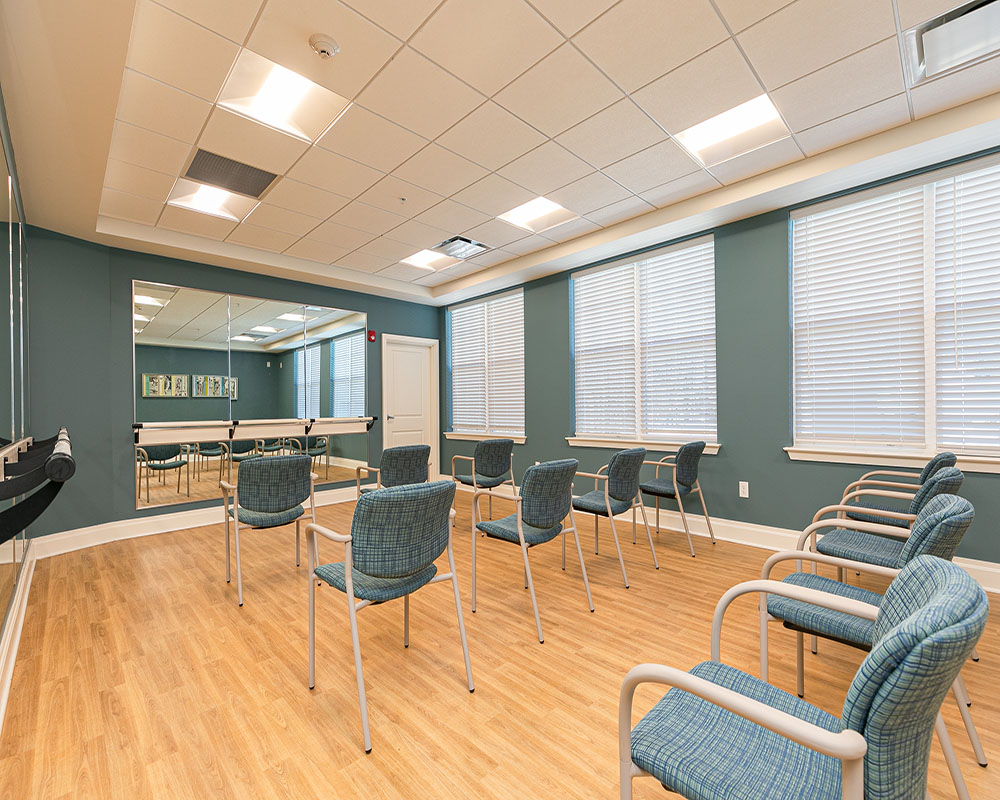The question of whether Alzheimer’s disease can skip a generation is a common inquiry among those who have a family history of the condition. While it is possible that Alzheimer’s can skip a generation, there is no guarantee that it will occur in every case. This is because Alzheimer’s is a complex and multifactorial disease with a wide range of risk factors.
If a loved one is living with Alzherimer’s, a memory care community like Silver Comet Village can help them maintain a high quality life while they get the support they need.
what is alzheimer’s disease?
Alzheimer’s disease is a progressive neurological disorder that affects memory, thinking, and behavior. It is the most common form of dementia, an umbrella term for memory loss and other cognitive abilities serious enough to interfere with daily life. While Alzheimer’s is most commonly seen in older adults, it can affect people of any age.
While Alzheimer’s disease can be hereditary, it’s not solely determined by genetics. In fact, only a small percentage of cases are caused by specific inherited gene mutations. The majority of people who develop Alzheimer’s do not have a family history of the disease. This means that other factors, such as lifestyle and environmental influences, also play a significant role in the development of Alzheimer’s.
the genetics of alzheimer’s
Scientists have identified several genes that are associated with an increased risk of developing Alzheimer’s. The most significant gene is called apolipoprotein E (APOE). There are three versions (alleles) of this gene: APOE2, APOE3 and APOE4. Everyone inherits two copies of the APOE gene, one from each parent. Having at least one copy of the APOE4 allele increases your risk of developing Alzheimer’s while having two copies significantly increases your risk.
It’s important to note that there is still a lot we do not understand about the genetics of Alzheimer’s. For example, there are individuals who carry the APOE4 allele but never develop Alzheimer’s, and others who do not have any copies of the APOE4 allele but still develop the disease. This suggests that other factors may be at play.
Can You Pass Down the Alzheimer’s Gene?
Having a first-degree relative (parent or sibling) with the disease increases your risk of developing Alzheimer’s by about 2 to 3 times. This is because certain genes that are linked to Alzheimer’s can be passed down from one generation to the next. But inheriting these genes does not guarantee that you will develop the disease.
Genetics alone cannot determine whether someone will develop Alzheimer’s. Other risk factors such as lifestyle choices, environmental influences, and overall health also play a significant role in the development of the disease. This means that even if someone has a family history of Alzheimer’s, they may not necessarily inherit the genes that increase their risk of developing it.
the role of lifestyle in alzheimer’s

While we may not be able to change our genes, we can make lifestyle choices that may help reduce our risk of developing Alzheimer’s. These include the following:
- Exercise Regularly: Studies have shown that physical activity can help preserve our brain health and reduce the risk of developing Alzheimer’s. Aim for at least 150 minutes of moderate-intensity exercise per week.
- Eat a Healthy & Balanced Diet: A diet rich in fruits, vegetables, whole grains, and healthy fats like omega-3s may help protect against cognitive decline and reduce the risk of Alzheimer’s.
- Stay Socially Engaged: Maintaining social connections and participating in mentally stimulating activities can help keep our brains active and healthy.
- Get Enough Sleep: Chronic lack of sleep has been linked to an increased risk of developing Alzheimer’s, so aim for 7–8 hours of quality sleep each night.
- Avoid Tobacco & Excessive Alcohol Consumption: Both smoking and heavy alcohol use have been linked to an increased risk of developing Alzheimer’s. It’s best to avoid or limit these habits.
While there is no guarantee that following these lifestyle habits will prevent or delay Alzheimer’s, they have been shown to be beneficial for overall brain health and may help reduce the risk of developing the disease. So, even if you are at a higher genetic risk for Alzheimer’s, making healthy lifestyle choices can still make a difference in your brain health.
memory care at silver comet village
At Silver Comet Village, our memory care community focuses on promoting healthy lifestyle habits for our residents to help support their cognitive health. Our team works closely with each resident to create personalized plans that incorporate physical activity, healthy eating, social engagement, and good sleep hygiene.
Contact us today to learn more about our memory care program and how we can support your loved one’s brain health.































